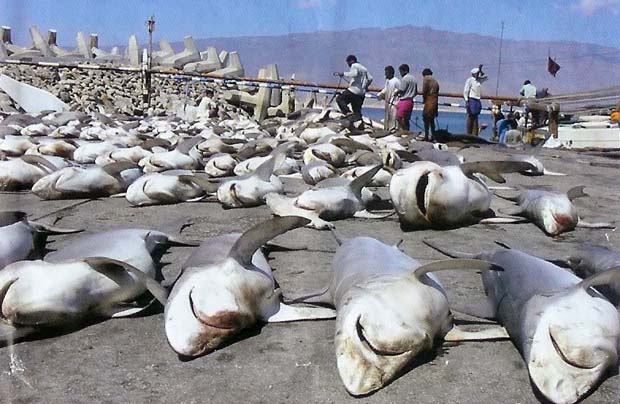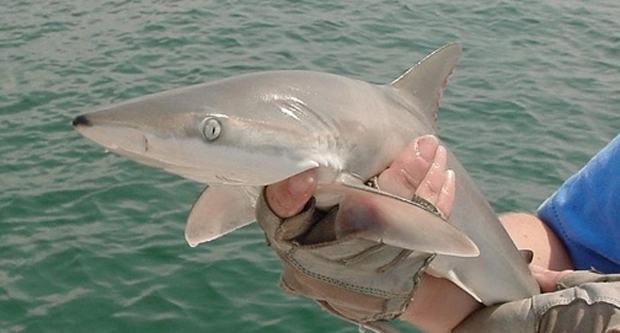 Harte Research Foundation Genomics Study Reveals Diversity of Blacknose Shark Populations
Harte Research Foundation Genomics Study Reveals Diversity of Blacknose Shark Populations
[dropcapA[/dropcap] study conducted by HRI’s Marine Genomics Laboratory is causing scientists to rethink management of the blacknose shark, a tropical to warm-temperate species that is exploited by both recreational and commercial fishermen.
The blacknose shark, Carcharhinus acronotus, frequents the Atlantic waters from Virginia on the east coast southward through the Gulf of Mexico and Caribbean Sea to Brazil. Currently, blacknose sharks are listed as near threatened with a decreasing population trend by the International Union for Conservation of Nature (IUCN). However, while conservationists believe the blacknose is over-fished along the U.S. Atlantic coast, the status of populations in the Gulf of Mexico is not well known.
The goal of the HRI study funded by NOAA’s National Marine Fisheries Service (NMFS) was to determine whether or not there are different, discrete genetic populations of blacknose sharks in U.S. waters. The team led by Dr. David Portnoy, Assistant Professor in Life Sciences, and Dr. John Gold, Endowed Chair for Genomics, included scientists from other universities as well as NMFS and state agencies on the east coast.
“Our study assessed patterns of genetic variation in nuclear and mitochondrial DNA among sharks sampled along the U.S. coastline from South Carolina through Texas, and from waters outside U.S. territory,” said Portnoy. “Samples from the Bay of Campeche in Mexico and the Bahamas were important to determine if independent nations are utilizing the same resources.”
The results showed that stocks of blacknose shark are divided into five discrete, genetic populations that are localized in separate geographic regions. In U.S. waters, there are three stocks, the Atlantic stock; and stocks in the eastern and western Gulf of Mexico, which are divided by freshwater inflows from the Mississippi River. Additional stocks have been identified in the Bahamas and Mexico’s Campeche Bay.
“In U.S. territorial waters, the blacknose shark is managed as Gulf and Atlantic units that are separate from the small coastal shark complex,” said Portnoy. “Defining separate stocks of blacknose sharks is critical to their management because stocks may differ biologically in important ways. For example, stocks may differ in terms of productivity and therefore a more productive stock could withstand greater fishing pressure than a less productive stock. Management strategies need to take these differences into account because quotas affect both biological and economic sustainability.”
The International Game Fish Association (IGFA) world record, All Tackle is 41-pounds, 9-ounces, Little River, South Carolina on June 30, 1992.. There is no category for blacknose shark in IGFA records.








